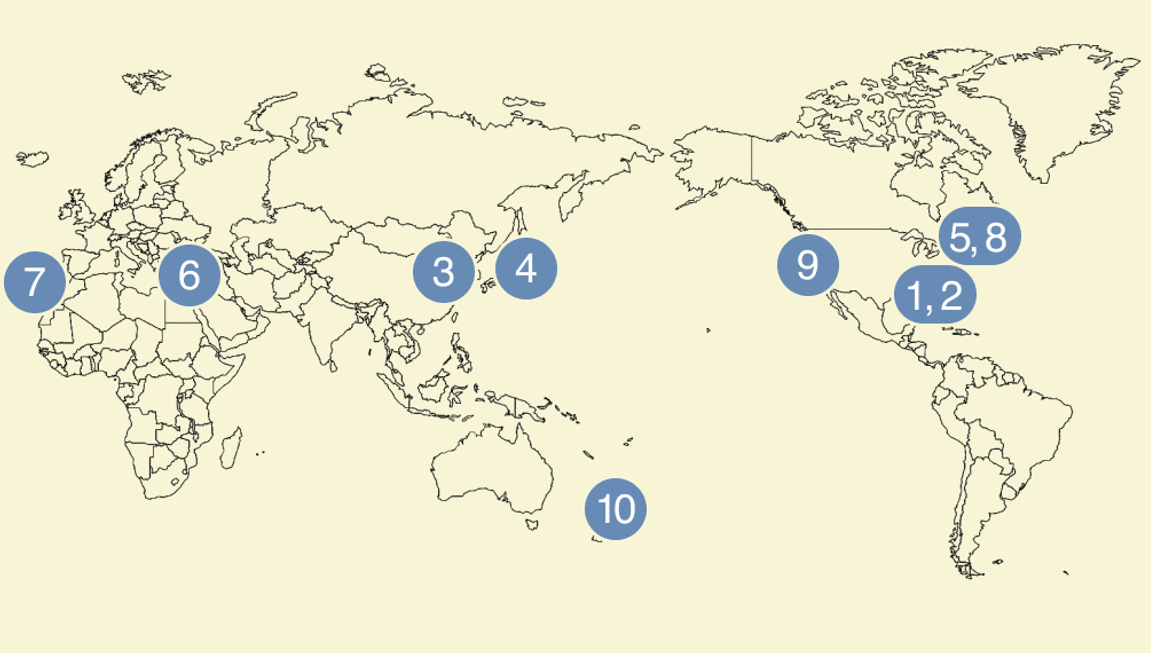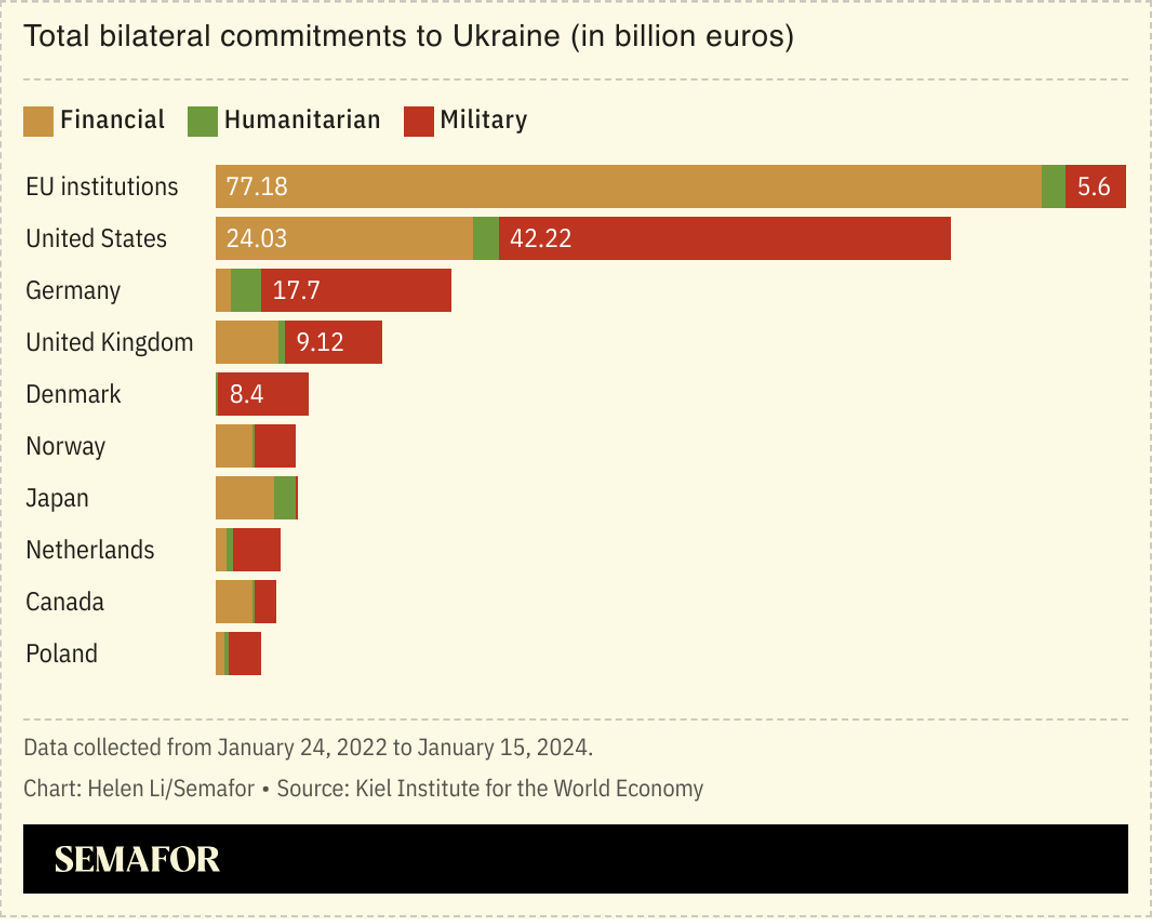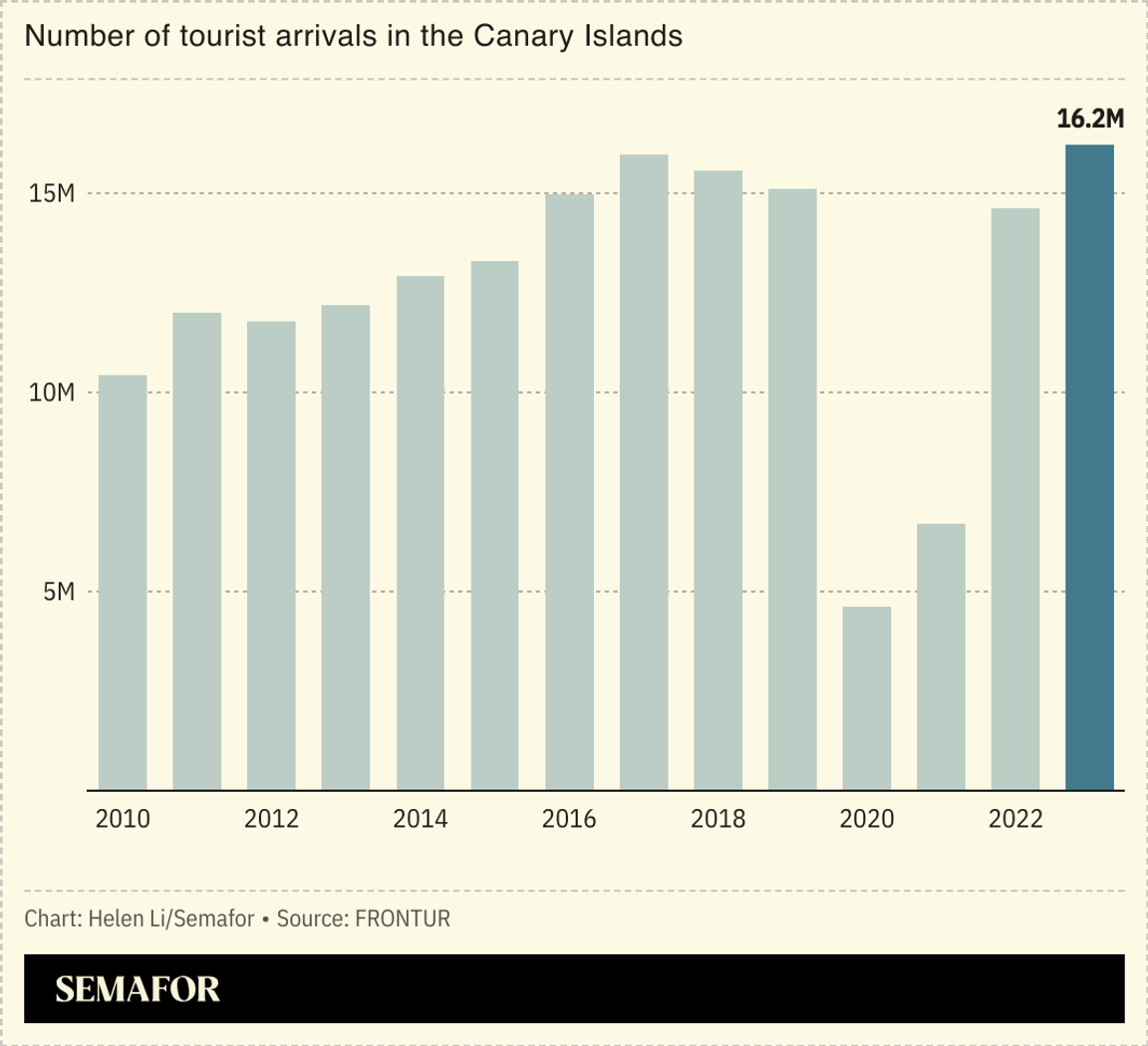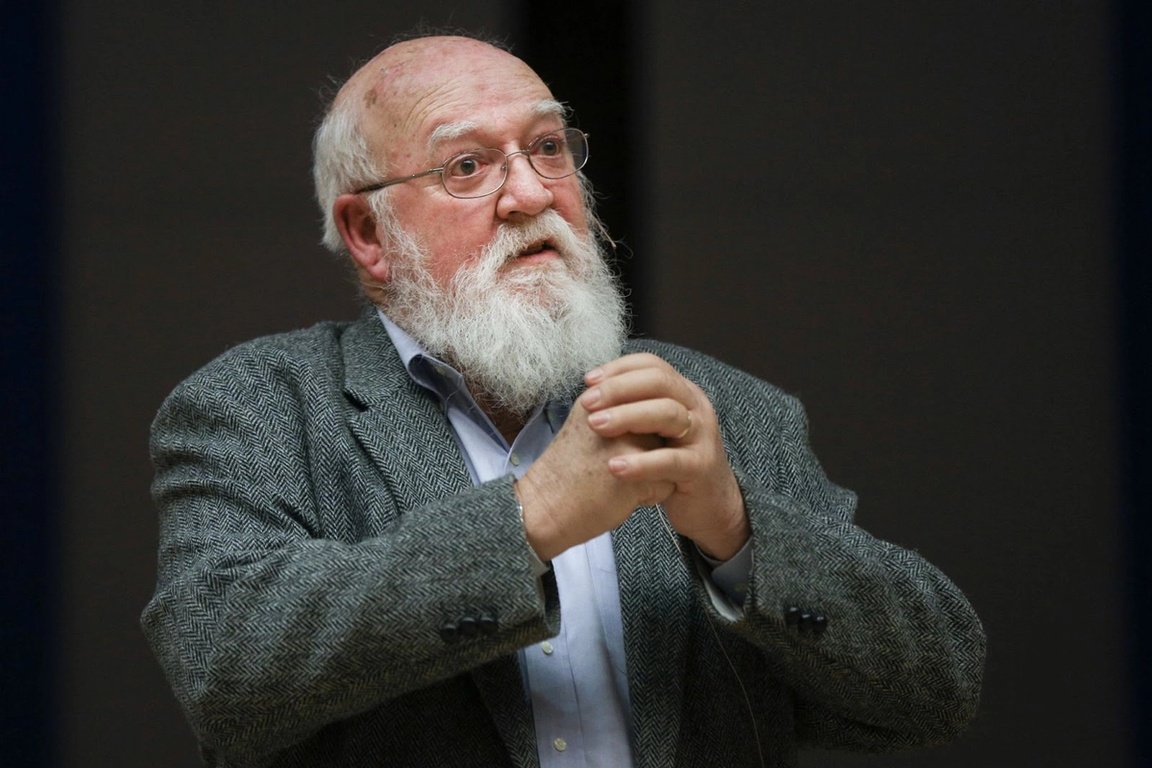| | A possible US TikTok ban advances, Washington’s top diplomat will warn China over tech sales to Russ͏ ͏ ͏ ͏ ͏ ͏ |
The World Today |  - Ukraine aid passes House
- TikTok ban advances
- Blinken to warn China
- Swimmer doping scandal
- Chess record broken
- Israel’s Arab partners
- Islands protest overtourism
- Daniel Dennett dies
- Brain-like computer
- Solar sail to launch
 A virtual K-pop boy band makes waves in the Phillipines. |
|
US House passes Ukraine aid |
 The U.S. House of Representatives overwhelmingly approved a $95 billion aid package for Ukraine, Israel, and Taiwan, a bipartisan show of support for Washington’s allies after months of stalled talks. The Senate is set to vote on, and likely pass, the bills as soon as Tuesday, with approval from President Joe Biden following soon after. Most of the money, about $60 billion, is for Kyiv, which had warned that American hesitation only emboldened Russia. Within Ukraine, news of the House’s approval was met with a “collective sigh of relief and an outpouring of gratitude,” The New York Times wrote. The impact “will be nearly immediate,” replenishing Kyiv’s dwindling stockpile of arms and ammunition, according to The Economist. |
|
TikTok ban on track to pass |
 DREW ANGERER/AFP via Getty Images DREW ANGERER/AFP via Getty ImagesU.S. lawmakers are set to approve a forced sale or ban of TikTok in the United States. In a bid for more Republican support, the foreign aid package that the House of Representatives passed on Saturday with national security provisions including forcing TikTok’s Chinese parent company to sell the platform in nine months, or face a ban. The bill, which is likely to pass the Senate and which TikTok is sure to challenge in court, worsens the already-strained U.S.-China relationship: As the anti-TikTok measure advanced last week, Beijing ordered the removal of messaging apps including WhatsApp from Apple’s app store in China, the U.S. tech giant said. |
|
Blinken to warn China over Russia |
 REUTERS/Ciro De Luca/Pool REUTERS/Ciro De Luca/PoolU.S. Secretary of State Antony Blinken will reportedly threaten China with punitive measures, possibly including sanctions on Chinese banks, if Beijing keeps sending military technology to Moscow. Blinken, who is set to meet with top government officials in China this week, plans to send the “clearest warning yet” that Washington is fed up with the sale of Chinese tech that helps Russia in its war against Ukraine, the Financial Times reported. The visit contrasts with officials in California, who have increasingly embraced China, pushing for closer ties on climate issues and more direct flights. And two giant pandas — a key part of Beijing’s soft-power toolkit — are set to come to the San Francisco Zoo next year. |
|
Chinese swimmers’ positive drug tests |
 Zhang Yufei. Bai Yu/CHINASPORTS/VCG via Getty Images Zhang Yufei. Bai Yu/CHINASPORTS/VCG via Getty ImagesMore than 20 Chinese swimmers — some of whom who went on to win medals at the Tokyo Olympics — tested positive for a banned substance ahead of the event, officials said. Chinese authorities determined the athletes inadvertently ingested a banned substance known as TMZ before the Tokyo games, The New York Times reported. U.S. officials said the swimmers should have been suspended, though world anti-doping investigators said that they could not disprove Beijing’s assertion and so allowed them to compete. The news comes just months ahead of the Paris Olympics, in which many of the same athletes — including two-time Olympic Gold medalist Zhang Yufei — are set to swim for China. |
|
Chess champions play for 60 hours |
 Screenshot via Instagram / @tunde_onakoya Screenshot via Instagram / @tunde_onakoyaA Nigerian chess champion faced off against an American competitor for 60 hours straight in New York’s Times Square, appearing to break the Guinness World Record for longest chess marathon. Tunde Onakoya’s string of matches with Shawn Martinez, in which they were allowed a five-minute break for every hour of play, beat the previous record of just over 56 hours. The attempt — in which the lactose intolerant Onakoya accidentally drank coffee with milk at one point, keeling over in pain — was closely watched in Nigeria, where he runs a nonprofit that uses chess as an avenue for education for poor children. Guinness World Records hasn’t commented on the marathon, but it usually takes weeks to confirm a new record. |
|
Behind Israel’s ties with Arab countries |
 JALAA MAREY/AFP via Getty Images JALAA MAREY/AFP via Getty ImagesTit-for-tat strikes between Israel and Iran demonstrated the significance of Israel’s sustained, and perhaps surprising, ties with Arab countries, analysts said. Jordan, Saudi Arabia, and the United Arab Emirates helped Israel as it shot down Iranian drones and missiles, a sign that the countries recognize Israel’s economic importance and “are no less anxious than Israel about Iran’s meddling” through proxies, Haaretz Economics Editor David Rosenberg wrote in Foreign Policy. Israel’s retaliatory strike near Iranian nuclear facilities was relatively restrained, a sign that it was weighing the interests of the Arab countries who don’t want to see a wider Middle East war, The Washington Post’s David Ignatius wrote. Israel, he said, is “behaving like the leader of a regional coalition against Iran.” |
|
Slow down tourism, Canary residents beg |
 Tens of thousands of people in the Canary Islands, the Spanish archipelago off the coast of northwestern Africa, protested against incessant tourism that they say is hurting the environment and driving up housing costs for locals. Tourism, which makes up roughly 35% of the islands’ economy, has already exceeded pre-pandemic levels. The protesters, some of whom began a hunger strike, said they are not anti-visitor, but oppose the government’s approach to tourism that they argue promotes growth at all costs; they are pushing to stop the construction of two large luxury projects on the island of Tenerife, which is home to Mt. Teide, a dormant volcano. |
|
Join Flagship on WhatsApp — our new channel delivers regular (but not too regular) updates from around the world, bringing you charts, statistics, and conversations from our global team of journalists. Join by clicking this link on your phone. |
|
Dennett, philosopher and atheist, dies |
 Beata Zawrzel/NurPhoto via Getty Images Beata Zawrzel/NurPhoto via Getty ImagesDaniel Dennett, the neuroscientist and philosopher of science, died at age 82. His work dealt with the hardest questions, most notably free will, consciousness, and religion, and he was often misunderstood: The New York Times’ obituary described him as calling free will an “illusion,” but in fact he was a compatibilist, arguing that free will can and does exist in a deterministic universe. Others likewise said he thought consciousness was illusive, but Dennett said simply that it was made of smaller, simpler parts. One thing he definitely did think was imaginary was God: He was famous as one of the “Four Horsemen” of New Atheism, alongside Sam Harris, Richard Dawkins, and Christopher Hitchens. Now just two of the horsemen ride. |
|
Computer mimics human brain activity |
 Courtesy Intel Courtesy IntelIntel unveiled the largest ever computer designed to mimic human brain activity. “Neuromorphic” computers use artificial neurons that both store data and compute information, as neurons in our brain seem to, unlike traditional computers in which memory and processing are separate. Removing the need to shuttle data between the two components should avoid bottlenecks and reduce energy consumption: Intel claims that “Hala Point” will need 100 times less energy to an equivalently powerful conventional machine. It may also provide a path to more general artificial intelligence: “The dream is that one day neuromorphic computing will enable us to make brain-like models,” one engineer told New Scientist. |
|
 NASA NASAA NASA spacecraft powered by a solar sail is scheduled to launch next week. The Advanced Composite Solar Sail System will take off from New Zealand and deploy its 30-foot sail about 600 miles above the Earth, testing the technology in hope of informing more ambitious craft in future. Solar sails use the pressure of sunlight to propel the craft: The pressure is faint, so acceleration is gentle, but it does not require fuel, meaning it could operate indefinitely. The Japanese IKAROS successfully used solar sail propulsion in 2010. In other unorthodox space news, NASA confirmed that it would deliver a rotor-powered drone to Saturn’s moon Titan by 2034, which would look around for life-relevant chemical signs. |
|
 April 22: - Nigeria hosts the African Counter-Terrorism Summit in Abuja.
- Countries around the world celebrate Earth Day.
- The Jewish holiday of Passover begins at sundown.
|
|
 Screenshot from Instagram @plave_official Screenshot from Instagram @plave_officialA new K-pop group made up of virtual avatars is taking off in the Philippines. PLAVE, whose members include five male avatars, uses motion-capture technology, meaning there are anonymous, real people behind the group, according to Philippine outlet ABS-CBN. Virtual celebrities are nothing new — two British artists created the virtual band Gorillaz in 1998 — but they are becoming more ubiquitous alongside the more mainstream global popularity of K-pop and anime. The successful K-pop girl group Aespa consists of human members who each have a virtual counterpart, and Hatsune Miku, a singing voice software and avatar with long blue ponytails, just performed at Coachella. |
|
| |